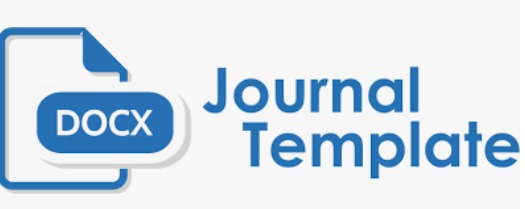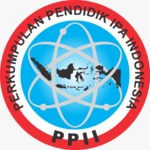Pemetaan Penelitian Pengembangan Buku Ajar IPA Sekolah Kejuruan: Sebuah Analisis Bibliometrik
DOI:
https://doi.org/10.29408/kpj.v7i3.24201Keywords:
pemetaan penelitian, pengembangan buku ajar IPA sekolah kejuruan, analisis bibliometrikAbstract
Tujuan dari studi ini adalah untuk memetakan penelitian pengembangan buku ajar IPA sekolah kejuruan di seluruh dunia. Hasil dari penelitian ini diharapkan dapat memberikan informasi bagi peneliti lain dalam mengembangkan buku ajar IPA SMK di Indonesia secara khusus. Kurikulum SMK di Indonesia menempatkan IPA sebagai salah satu mata pelajaran mata pelajaran wajib yang harus ditempuh oleh siswa sebelum menempuh mata pelajaran Kompetensi Keahlian, atau dengan kata lain mata pelajaran IPA merupakan mata pelajaran penentu dalam keberhasilan menempuh mata pelajaran kejuruan siswa kedepannya. Penelitian tentang pengembangan buku ajar IPA SMK akan memberikan kontribusi terhadap perbaikan kualitas pendidikan di SMK, khusunya pada mata pelajaran IPA sebagai mata pelajaran prasyarat mata pelajaran kejuruan. Hasil penelitian menunjukkan dari 41 artikel yang dianalisis, kajian 13 artikel masih terbatas pada konten atau kurikulum IPA, 19 artikel secara spesifik menyebutkan penelitiannya tentang buku ajar IPA, hanya 9 penelitian yang secara spesifik menyebutkan sekolah kejuruan dalam penelitiaanya tentang buku ajar IPA. Namun tidak satu pun penelitian ditemukan secara khusus mengkaji tentang pengembangan buku ajar IPA sekolah kejuruan atau SMK. Berdasarkan indeksasi, ditemukan 34 artikel terindeks scopus dan 7 artikel terindeks nasional (Indonesia). tinjauan berdasarkan tahun terbit menunjukkan sebaran yang cukup merata tiap tahunnya. Kecuali pada tahun 2021 dan 2022, jumlah artikel yang ditemukan cukup banyak jika dibandingkan dengan tahun sebelumnya.References
Adler, Isabell K., Fiedler, Daniela, & Harms, Ute (2022). Darwins tales-A content analysis of how evolution is presented in children’s books. PLoS ONE, 17(7), Public Library of Science, https://doi.org/10.1371/journal.pone.0269197
Akcan, Emrullah (2022). Culturally responsive education as a sustainable educational approach: Reflections from primary school teachers life science course practices. Journal of Pedagogical Research, Journal of Pedagogical Research, https://doi.org/10.33902/jpr.202215416
Aldahmash, A. H., Mansour, N. S., Alshamrani, S. M., & Almohi. S. (2016). An analysis of activities in Saudi Arabian middle school science textbooks and workbooks for the inclusion of essential features of inquiry. Research in Science Education, 46, 879–900. https://doi.org/10.1007/s11165-015-9485-7
Andersen, K. N. (2020). Assessing task-orientation potential in primary science textbooks: Toward a new approach. Journal of Research in Science Teaching. 57(4),481–509. https://doi.org/10.1002/tea.21599
Arini, Yayuk Sri Wahyu Endah, Gunawan, Wawan, & Subandowo, Marianus (2021). Pengembangan Modul IPA Terapan Berbasis Problem Based Learning untuk Mendukung Pembelajaran Mandiri di SMK. Educate : Jurnal Teknologi Pendidikan, 6(2), 72, LPPM Universitas Ibn Khaldun Bogor, https://doi.org/10.32832/educate.v6i2.5060
Ayele, Daniel Samuel. (2022). Students' Perspective on Effectiveness of Electronic Resources and Conventional Textbook Materials in Promoting Learning in Isa Mustapha Agwai I Polytechnic (IMAP), Lafia. Library Philosophy and Practice (e-journal). 7201. https://digitalcommons.unl.edu/libphilprac/7201
Bansiong, Apler J. (2019). Readability, content, and mechanical feature analysis of selected commercial science textbooks intended for third grade filipino learners. Cogent Education, 6(1), Taylor and Francis Ltd., https://doi.org/10.1080/2331186X.2019.1706395
Bayır, E. & Kahveci, S. (2022). Ortaokul Fen Bilimleri Ders Kitaplarının Bilimsel Süreç Becerileri Açısından İncelenmesi. Cumhuriyet Uluslararası Eğitim Dergisi , 11 (1) , 253-262 https://doi.org/10.30703/cije.1026825
Beni, Saritha, Stears, Michele, & James, Angela (2012). Teaching natural science in the foundation phase: Teachers’ understanding of the natural science curriculum South African Journal of Childhood Education, 2(1), 63-81.
Borgerding, Lisa A. (2017). High school biology evolution learning experiences in a rural context: a case of and for cultural border crossing. Cultural Studies of Science Education, 12(1), 53-79, Springer Netherlands, https://doi.org/10.1007/s11422-016-9758-0
Choi, Soyoung, Niyogi, Dev, Shepardson, Daniel P, & Charusombat, Umarporn (2010). Do Earth And Environmental Science Textbooks Promote Middle And High School Students Conceptual Development About Climate Change?. Bulletin of the American Meteorological Society, 91(7), 889-898, https://www.proquest.com/scholarly-journals/do-earth-environmental-science-textbooks-promote/docview/746488575/se-2
Corrigan, D. J., & Fensham, P. (2002). The roles of chemistry in vocational education. In J. K. Gilbert, O. de Jong, R. Justi, D. F. Treagust, & J. H. van Driel (Eds.), Chemical Education: Towards Research-based Practice (pp. 125 - 142). Kluwer Academic Publishers.
De Souza, Edna Luiza, & Dias Garcia, Nilson Marcos. (2021). Da Escola Para A Casa, Da Casa Para A Escola: O Livro Didático De Ciências Como Elo Entre A Dinâmica Escolar E A Comunidade Local. Pedagogia Social, Journal of Research in Social Pedagogy, 39, 49-60, https://doi.org/10.7179/PSRI_2021.39.03
Desnita, Desnita, Festiyed, Festiyed, Novitra, Fuja, Ardiva, Andini, & Navis, Mutia Yussavel (2022). The Effectiveness of CTL-based Physics E-module on the Improvement of the Creative and Critical Thinking Skills of Senior High School Students. TEM Journal, 11(2), 802-810, UIKTEN - Association for Information Communication Technology Education and Science, https://doi.org/10.18421/TEM112-38
Dogan, O. (2020). Methodological? Or Dialectical?: Reflections of Scientific Inquiry in Biology Textbooks. International Journal of Science and Mathematics Education. https://doi.org/10.1007/s10763-020-10120-7
Durukan, Ummu Gulsum, Batman, Demet, & Aslan, Aysegul (2022). The Analysis of Middle School Science Course Contents of Out-of-School Learning Environment Guidebooks, Bartin University Journal of Faculty of Education, 517-542, Bartin Universitesi, https://doi.org/10.14686/buefad.990199
Dwikusuma, Andhika Soen, Bachri, Bachtiar S. (2014). Pengembangan Media Modul Pada Mata Pelajaran IPA Materi Pokok Gempa Bumi Untuk Siswa Kelas X SMK Negeri 1 Temayang Bojonegoro, Jurnal Mahasiswa Teknologi Pendidikan, 5(1).
Estuhono, Estuhono, Rusdinal, Rusdinal, & Gistituati, Nurhijrah (2018). A Design of an Innovative Thematic Textbook Based on the Model of the Integrated Religious Characters. The Educational Review, USA, 2(4), https://doi.org/10.26855/er.2018.04.001
Ferreira, Silvia, & Saraiva, Leonor (2021). COMPLEXITY of PRACTICAL WORK in PORTUGUESE PRIMARY SCIENCE TEXTBOOKS. Investigacoes em Ensino de Ciencias, 26(3), 281-297, Universidade Federal do Rio Grande do Sul, Instituto de Fisica, https://doi.org/10.22600/1518-8795.ienci2021v26n3p281
H, Omar Sozan (2020). A content analysis of cognitive representations in a ninth-grade science textbook’s chemistry of matter unit: Evidence from Saudi Arabia. Cogent Education, 7(1), Taylor and Francis Ltd., https://doi.org/10.1080/2331186X.2020.1808283
Hamid, Saja, Al-Rubaie, Hantoush, Faleh, Yusef, & Al-Saadi, Muhammad (2021). The extent to which the 6th grade science textbook includes 21st century skills. Turkish Journal of Computer and Mathematics Education, 12(11), 358-368
Haryani, S., Dewi, S. H., Wardani, S., & Supardi, K. I. (2021). Integrated vocational context in chemical teaching materials for vocational school. Journal of Physics: Conference Series, 1918(3), IOP Publishing Ltd, https://doi.org/10.1088/1742-6596/1918/3/032027
Harvey, Paul, & Bond, John (2022). The Effects and Implications of Using Open Educational Resources in Secondary Schools The Effects and Implications of Using Open Educational Resources in Secondary Schools Harvey and Bond. International Review of Research in Open and Distributed Learning, 23
Huang, Mao-Tsai, & Wu, Rosalind J. (2016). Design Principles for Elementary Science Textbooks: An Study with a Unit on “Heat Transfer”. Journal of Textbook Research, 9(2), 69-100.
Huang, Ronghuai, Tlili, Ahmed, Zhang, Xiangling, Sun, Tianyue, Wang, Junyu, Sharma, Ramesh C., Affouneh, Saida, Salha, Soheil, Altinay, Fahriye, Altinay, Zehra, Olivier, Jako, Jemni, Mohamed, Wang, Yiping, Zhao, Jialu, & Burgos, Daniel (2022). A Comprehensive Framework for Comparing Textbooks: Insights from the Literature and Experts. Sustainability (Switzerland), 14(11), MDPI, https://doi.org/10.3390/su14116940
Hutabarat, Risma Ganda, & Werdhiana, Marungkil I Pasaribu dan Komang. (2015) Pengembangan Bahan Ajar Dengan Model Dick, Carey & Carey Pada Mata Pelajaran IPA Kelas XI SMK Negeri 5 Palu. e-Jurnal Mitra Sains, 3(3), 84-91, http://www.ak-ishaq.com/2011/01/model-pengembangan-menurut-dick.html
Jong, Jing-Ping. (2021). Exploring the Construction of a Conceptual Model of Chemical Equilibrium in Taiwanese Junior High School Science Textbooks Through a Scientific Modeling Process. Journal of Textbook Research, 14(1), 31-56, https://doi.org/10.6481/JTR.202104_14(1).02
Kahveci, A. (2010) Quantitative analysis of science and chemistry textbooks for indicators of reform: a complementary perspective. International Journal of Science Education, 32(11), 1495-1519. https://doi.org/10.1080/09500690903127649
Kapsala, Nausica, Galani, Apostolia, & Mavrikaki, Evangelia (2022). Nature of Science in Greek Secondary School Biology Textbooks. Center for Educational Policy Studies Journal, 12(2), 143-168, University of Ljubljana, https://doi.org/10.26529/cepsj.1309
Kovac, Miha, & Mohar, Alenka Kepic (2022). The Changing Role of Textbooks in Primary Education in the Digital Era: What Can We Learn from Reading Research? Center for Educational Policy Studies Journal, 12(2), 11-27, University of Ljubljana, https://doi.org/10.26529/cepsj.1290
Nisa, W. M., & Wilujeng, I. (2021). Development of integrated science textbooks on local potential food Bakpia for junior high school. Journal of Physics: Conference Series, 1806(1), IOP Publishing Ltd, https://doi.org/10.1088/1742-6596/1806/1/012126
Nopita, Amanda, Musdansi, Dwi Putri, Kurniawan, Edi, & Singingi, Kuantan. (2022). Pengembangan Buku Saku Pada Materi Larutan Elektrolit dan Non Elektrolit Di SMK Negeri 1 Logas Tanah Darat. JOM FTK UNIKS, 3(1), 7-12.
Pavesic, Barbara Japelj, & Cankar, Gasper (2022). Textbooks and Students’ Knowledge. Center for Educational Policy Studies Journal, 12(2), 29-65, University of Ljubljana, https://doi.org/10.26529/cepsj.1283
Pellegrino, Anthony, Peters-Burton, Erin, & Gallagher, Melissa (2018). Considering the Nature and History of Science in Secondary Science Textbooks. The High School Journal, 102(1), 18-45, Project Muse, https://doi.org/10.1353/hsj.2018.0018
Pistanti, Mingle A., Sunarno, Widha, & Maridi. (2015). Pengembangan Modul IPA Berbasis Problem Based Learning Untuk Meningkatkan Kemampuan Memecahkan Masalah Pada Materi Polusi Serta Dampaknya Pada Manusia Dan Lingkungan Siswa Kelas XI SMK Pancasila Purwodadi, Jurnal Inkuiri, 4(2), 68-75, https://jurnal.fkip.uns.ac.id/index.php/sains
Pizzini, Edward L ;, Shepardson, Daniel P;, & Abell, Sandra K (1992). The Questioning Level of Select Middle School Science Textbooks. School Science and Mathematics, 74-79.
Polikoff, M. S., Zhou, N., & Campbell, S. E. (2015). Methodological choices in the content analysis of textbooks for measuring alignment with standards. Educational Measurement, 34(3), 10–17. https://doi.org/10.1111/emip.12065
Qinglong, Lin, & Yaxuan, Wang. (2013). Gender issues in science textbooks.
Journal of Textbook Research, 6(3), 95-130, https://www.proquest.com/scholarly-journals/gender-issues-science-textbooks/docview/2378105164/se-2
Rahman, Norshariani Abd, Zabidi, Fatin Nur Marhamah Mohd, & Halim, Lilia (2020). Integration of tauhidic elements for environmental education from the teachers’ perspectives. Religions, 11(8), 1-17, MDPI AG, https://doi.org/10.3390/rel11080394
Ritonga, Heni Asmora, Hariyadi, Bambang, & Sukmono, Tedjo. (2017). Pengembangan Modul IPA Terapan Berbasis Kontekstual untuk siswa SMK kelas XI Bidang Keahlian Nautika Kapal Penangkapan Ikan Development of Applied Science-Based Contextual Module for class XI student of SMK Expertise Nautical Fishing Boat, Edu-Sains, 6(1), 34-42.
Rozi, Achmad, Khoiri, Ahmad, Farida, R. Dewi Mutia, Sunarsi, Denok, Jasmani, Paeno, Munawaroh, & Iswadi, Udi (2021). The fullness of Higher Order Thinking Skills (HOTs) in Applied Science Textbooks of Vocational Schools. Journal of Physics: Conference Series, 1764(1), IOP Publishing Ltd, https://doi.org/10.1088/1742-6596/1764/1/012143
Setyowati, Ratna, Parmin, & Widiyatmoko, Arif. (2013). Pengembangan Modul IPA Berkarakter Peduli Lingkungan Tema Polusi Sebagai Bahan Ajar Siswa Smk N 11 Semarang, Unnes Science Education Journal, 2(2), 245-253.
Sibanda, Lucy. (2014). The readability of two Grade 4 natural sciences textbooks for South African schools. South African Journal of Childhood Education, 4(2), 154-175. Retrieved November 27, 2022, from http://www.scielo.org.za/scielo.php?script=sci_arttext&pid=S2223-76822014000200010&lng=en&tlng=en.
Solaz-Portoles, Joan Josep. (2010). La Naturaleza De La Ciencia Y Los Libros De Texto De Ciencias: Una Revisiã“N (Nature Of Science And Science Textbooks: A Review Of Research), Educación XX1, 13(1), 65-80
Souza, Edna Luiza de, & Garcia, Nilson Marcos Dias (2021). FROM SCHOOL to HOME, from HOME to the SCHOOL: The SCIENCE TEXTBOOKS AS A LINK between the SCHOLAR DYNAMIC and the LOCAL COMMUNITY. Pedagogia Social(39), 49-60, Sociedad Iberoamericana de PedagogÃa Social, https://doi.org/10.7179/PSRI_2021.39.03
Sun, Lihui, & Li, Liangbo (2021). The alignment between third-grade primary school science textbooks and curriculum standards in china and japan. Journal of Baltic Science Education, 20(3), 507-518, Scientia Socialis Ltd, https://doi.org/10.33225/jbse/21.20.507
Suprapto, Nadi, Tafauliyati, Tamlikhotut, & Yanti, Vivin Khoiri (2022). Development of e-Book with Flip PDF Professional Based on Scientific Literacy. TEM Journal, 11(2), 851-855, UIKTEN - Association for Information Communication Technology Education and Science, https://doi.org/10.18421/TEM112-44
Taber, Keith S. (2017). Knowledge, beliefs and pedagogy: how the nature of science should inform the aims of science education (and not just when teaching evolution). Cultural Studies of Rural Science Education, 12, 81-91, https://doi.org/10.1007/s11422-016-9750-8
Vojír, K., & Rusek, M. (2021). Preferred chemistry curriculum perspective: Teachers’ perception of lower-secondary school textbooks. Journal of Baltic Science Education, 20(2), 316-331. https://doi.org/10.33225/jbse/21.20.316
Zabidi, Fatin Nur Marhamah, Rahman, Norshariani Abd, & Halim, Lilia (2021). Integration of islamic values for environmental conservation: An analysis of school textbooks. Religions, 12(7), MDPI AG, https://doi.org/10.3390/rel12070509









